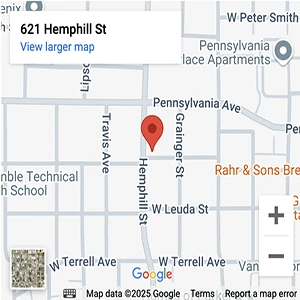The Hidden Risk of Autonomous Driving Assistance
TEXAS. New vehicles come equipped with a range of autonomous capabilities. According to Wired, modern vehicles can maintain a clear distance between your car and the car in front of you. Active steering can keep a car in its lane, even if the driver drifts. Sensors on cars can warn drivers when there is a motorcycle, biker, or pedestrian in your blind spot.
Yet, should drivers trust these semi-autonomous systems whole-heartedly? Autonomous technology remains in its relative infancy and has yet to undergo thorough real-world testing. Wired reports that in real-world tests, different company’s autonomous systems performed inconsistently across the board. This unevenness in performance should come as a warning to drivers who may be tempted to rely on these systems when they are behind the wheel. As it stands, consumers don’t have access to information about how reliable their car’s autonomous systems are. Wired notes that the Insurance Institute of Highway Safety wants to create a ranking system of new vehicles’ autonomous systems so consumers have a better idea of what they are purchasing. For example, in IIHS testing, not all vehicles with automatic braking capabilities stopped in time to prevent an accident. Consumers should be aware of these differences between brands.
Testing of autonomous features are a stark reminder of the technology’s limitations. Autonomous lane-control features often failed when lane markings became difficult to see. Shadows could trigger a car’s autonomous braking functions. And drivers often had to intervene to prevent accidents or lane drifting in many instances.
When autonomous systems are too good, drivers can become complacent. Some experts are concerned about partially autonomous vehicles for this reason. Drivers may be tempted to check their cell phones behind the wheel or leave the driving to their cars, unaware that the technology may not be ready to handle the job. Some believe that cars should either be fully autonomous or not partially autonomous at all. As it stands, there are no fully self-driving cars available on the market.
According to Fox News, in testing, all models of semi-autonomous vehicles failed to stop in time for a stopped vehicle in front of them, except for Tesla’s Model 3. This should be alarming news for drivers who may be over reliant on assistive driving technology. This should also be alarming news for other drivers on the road, who may be sharing the road with distracted drivers who may be relying too heavily on their assistive technology.
As it stands, the ultimate responsibility falls upon the driver. Drivers must be ready to intervene when their cars drift out of their lanes or when another car or person or biker is stopped in front of them. Drivers who get into crashes while using semi-autonomous technology are still negligent for their choices behind the wheel.
If you or a loved one was hurt in a car accident due to the actions or inaction of another person or driver, reach out to the Cooper Law Firm, a personal injury lawyer in Texas. Our firm can investigate the circumstances of your accident and fight to help you seek the damages you may be entitled to receive under the law. Visit us at https://cooper-law-firm.com/ to lean more.
Cooper Law Firm
501 N Third St,
Longview, TX 75601
Telephone: (903) 297-0037









